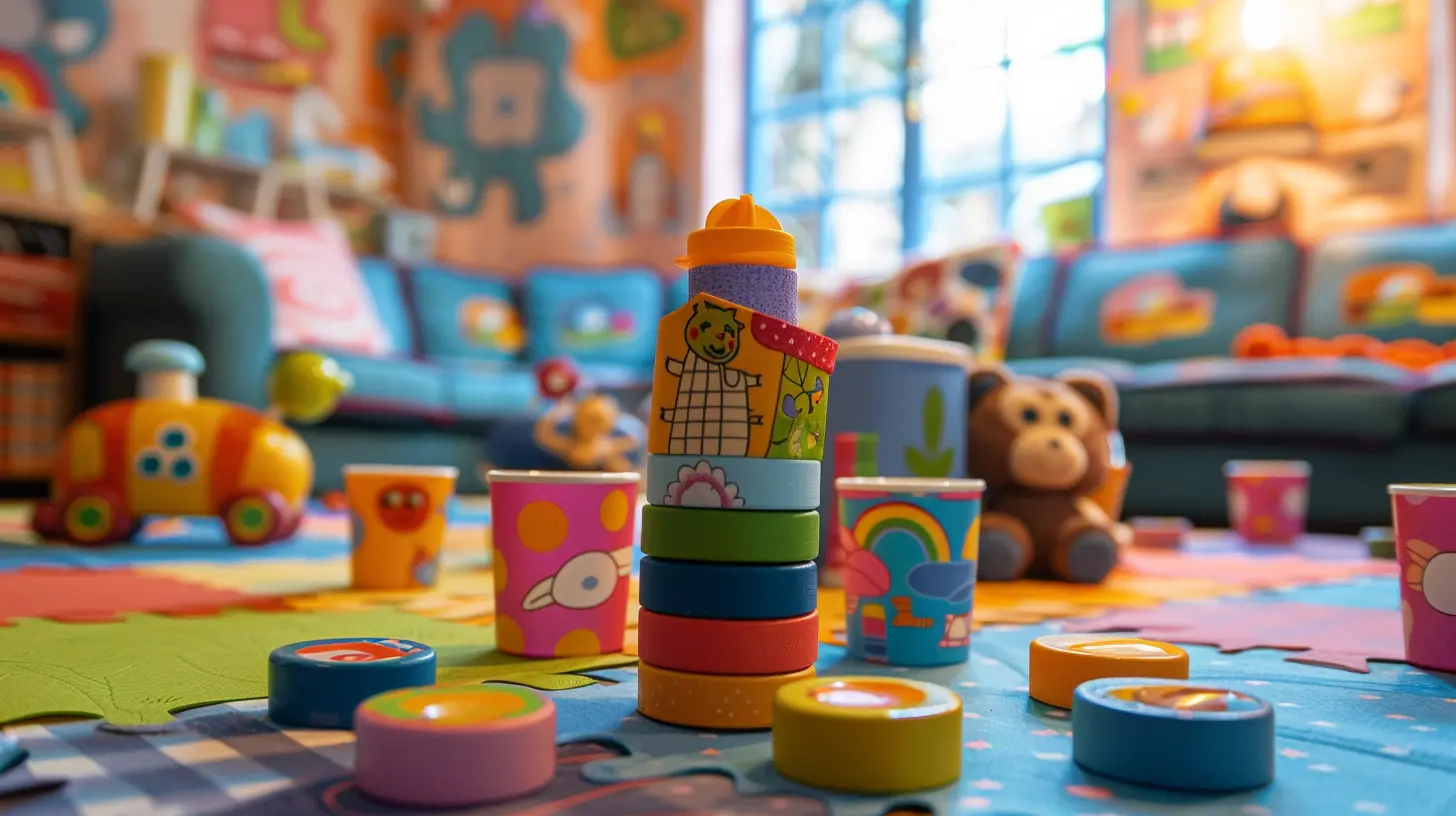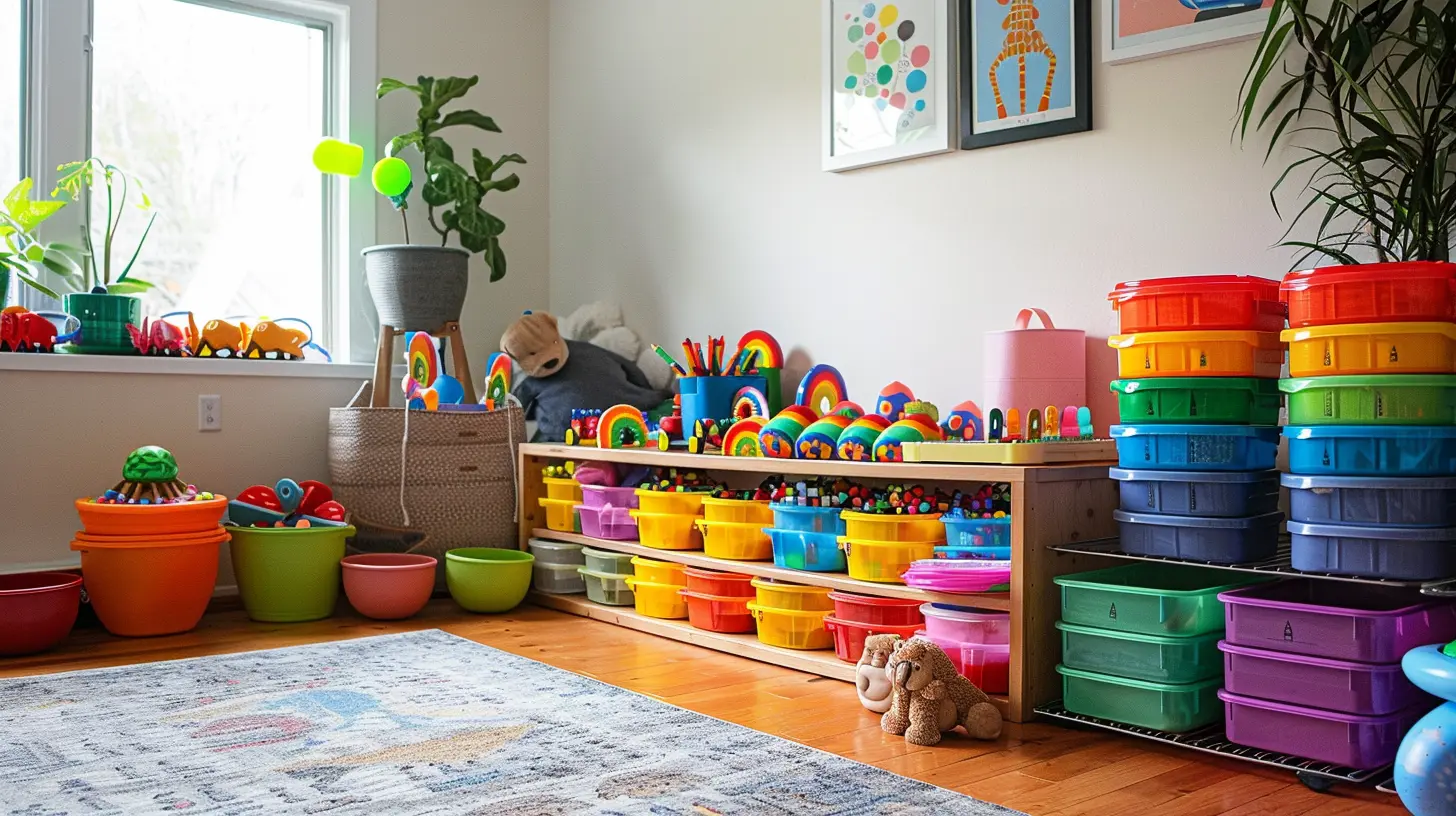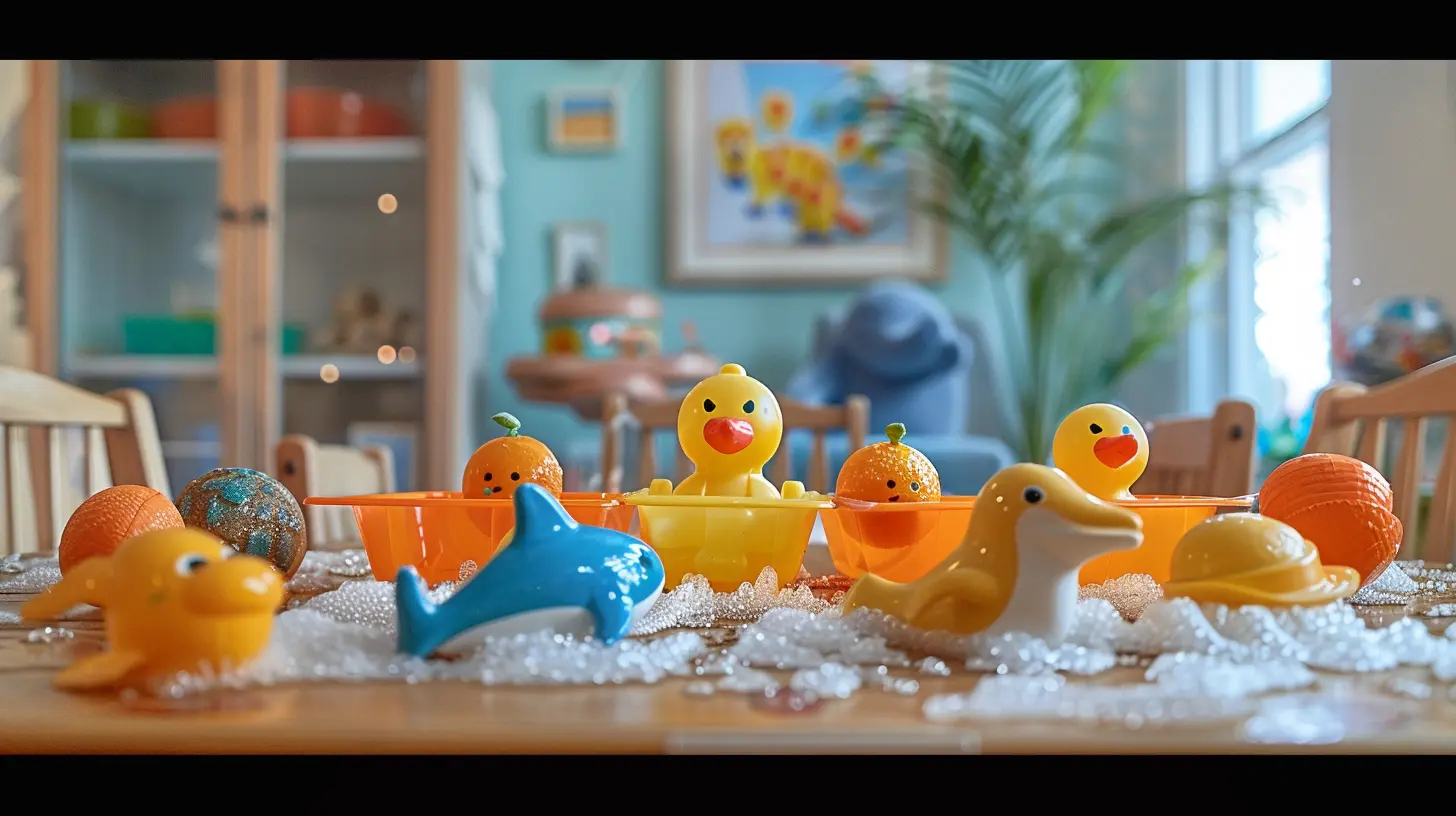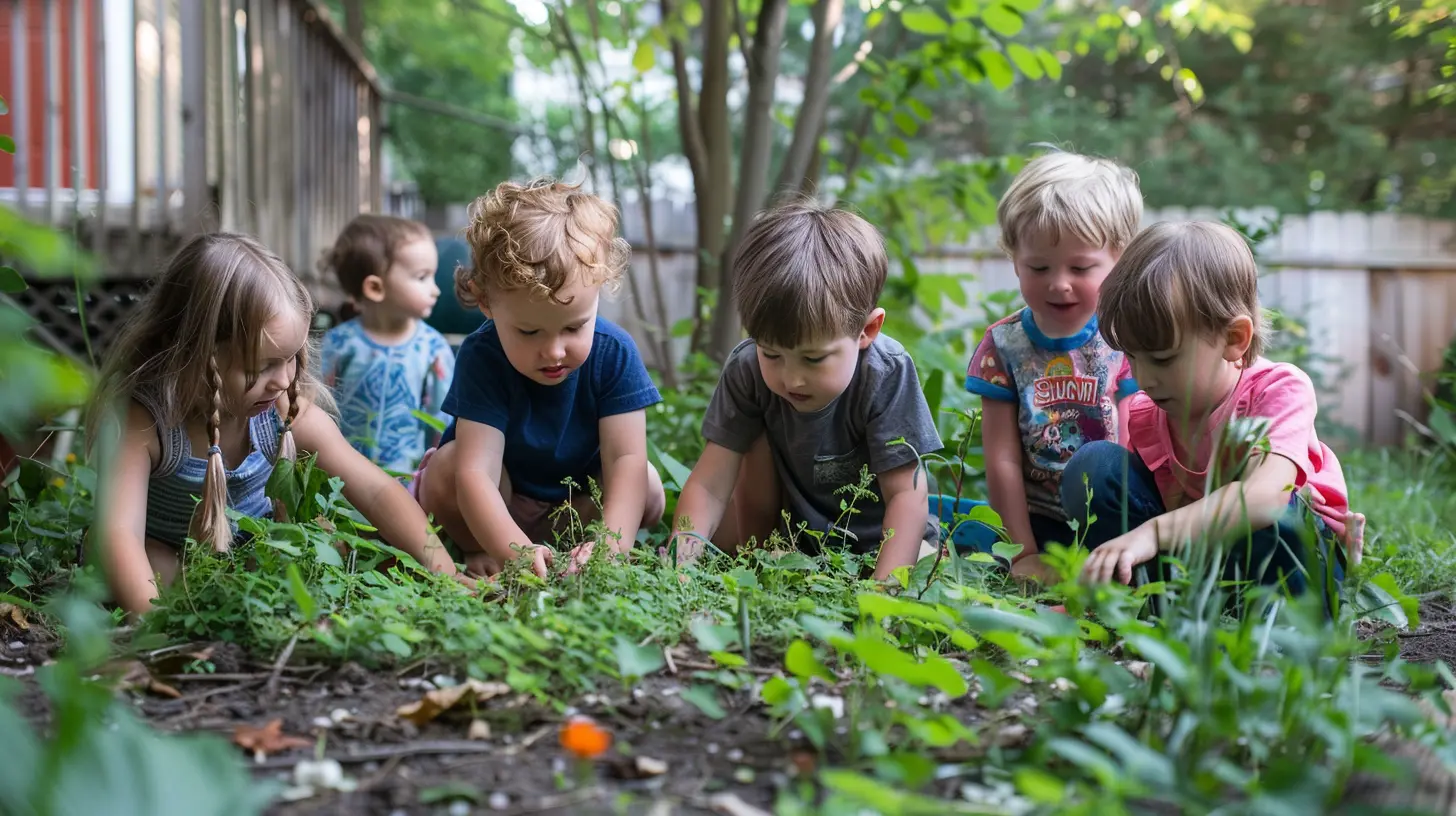Organizing Themed Play Dates to Encourage Group Interaction
2 August 2025
If you're a parent, you've probably heard the phrase “it takes a village.” And when it comes to raising socially confident, emotionally intelligent kids, that couldn’t be more true. One of the most practical — and fun — ways to create that village is by hosting themed play dates. These aren't just cute little get-togethers. Nope. They’re mini-labs for social learning, emotional growth, and building lifelong skills. Plus, they’re a blast (for both kids and grown-ups)!
Let’s dive headfirst into the world of themed play dates: why they work, how to keep them fun yet structured, and the secret sauce to making sure kids actually interact (and not just fight over LEGOs).
Why Themed Play Dates Work Like Magic
Ever notice how kids tend to open up more when they’re immersed in something they love? That’s the magic of themed play dates. When an activity revolves around a central idea — whether it's pirates, princesses, dinosaurs, or superheroes — kids get more excited and are more likely to engage with each other naturally.Think of it as creating a mini-world for them to explore together. Instead of aimlessly running around, kids have a shared mission, storyline, or challenge. Boom — instant connection.
Social Skills Don’t Happen By Accident
You might think that all kids need is time together to bond and learn to get along. But here's the thing: social interaction isn’t automatic for every child. Some kids need a nudge in the right direction, especially those who are shy, introverted, or new to group settings.Themed play dates give children:
- A shared purpose
- Opportunities to practice empathy, sharing, and collaboration
- Structured conversations in a playful environment
It’s about setting the stage for positive interaction.
Step-by-Step: How to Organize a Themed Play Date That Works
Planning a successful themed play date isn’t rocket science, but there’s an art to making it flow smoothly. Here’s exactly how to do it.1. Pick a Theme That Sparks Curiosity
Start by choosing a theme that excites your child — and ideally, something their age group will love too. Here are a few ideas by age:- Toddlers (1-3 years): Farm animals, colors, nursery rhymes
- Preschoolers (3-5 years): Dinosaurs, fairy tales, jungle safari
- Early Elementary (5-8 years): Superheroes, space mission, spy training
- Older Kids (8+): Mystery parties, science experiments, escape room themes
Pro tip: Let your child help decide the theme. It gives them ownership and gets them hyped!
2. Choose the Guest List Thoughtfully
Keep group size manageable. For younger kids, 3 to 5 attendees is ideal. For older ones, up to 8-10 can work — especially if you have helpers (or brave fellow parents!).Mix in a variety of personalities. A balance of outgoing and quieter kids can help level the energy and encourage inclusion.
3. Structure Matters — But Don’t Overdo It
Even themed play dates need breathing room. Here’s a simple way to structure your event:- Arrival Activity (10-15 mins): Something simple like coloring or sticker crafts related to the theme.
- Group Game (20 minutes): Think scavenger hunts, obstacle courses, or relay races.
- Snack Time (15 mins): Themed treats like “alien slime” pudding or “princess popcorn.”
- Creative Project (20-30 mins): DIY masks, building a time machine from cardboard, or finger painting dinosaurs.
- Free Play (15-20 mins): Let kids interact naturally without adult interference.
Avoid micromanaging. Background music and light guidance go a long way.
Making Interaction the Star of the Show
So how do you ensure that kids don’t just play alongside each other—but really interact, team up, and build friendships?Use Collaborative Activities
Set up games where success depends on working together. Some examples:- Team-based scavenger hunts: Have them pair up and follow clues to solve a mystery.
- Build something together: A cardboard castle, a spaceship, or even a LEGO city.
- Story creation: One child starts a story, and each kid adds a line.
Collaboration naturally leads to communication, negotiation, and bonding.
Encourage Role-Playing
Themes like pirates or safari guides practically beg for role-playing. Assign each child a role — the captain, the map reader, the animal expert — and give them a task. Role-play encourages imaginative thinking and gentle leadership.Don’t be afraid to play too! Kids love when adults get silly with them — it lowers their guard and boosts their own creativity.
Celebrate Each Other’s Contributions
After each activity, do a quick “cheer time.” Have everyone clap or say something kind about what another child did. "I loved how Jack shared the glue!" or "Emily was a great detective!” Simple praise can work wonders.Must-Have Supplies for a Smooth Play Date
You don’t need an overflowing Pinterest board to make this work. But having the right supplies makes everything easier.Essentials
- Theme-related decorations (banners, tablecloths, props)- A variety of toys or materials tied to your theme (e.g., animal masks, superhero capes)
- Art and craft supplies (scissors, glue sticks, markers)
- Healthy snacks and drinks
- Wet wipes and a first aid kit (trust us, always be prepared)
Nice-to-Haves
- Music or a playlist- A photo booth corner with props
- Goody bags with small theme-based tokens
Keep your setup simple but intentional. The goal is connection, not perfection.
Best Practices for Hosting
Even the best-planned play date can go haywire if a few basics aren't in place. Here’s how to keep things running smoothly.Set Clear Expectations
Start the play date with a quick, kid-friendly chat. Let them know the plan for the day and remind them of a few ground rules like:- Be kind to each other
- Take turns
- Ask for help when needed
This creates a positive tone right from the start.
Be Present, Not Overbearing
Stay nearby to supervise but don’t hover. Let kids solve minor disputes and work through awkward moments on their own. That’s part of the learning process.If two kids aren't connecting, gently guide them into the same activity or give them a shared task. Sometimes, all it takes is a little nudge.
Keep It Short and Sweet
For young children, 60-90 minutes is usually plenty. Older kids can stretch to about 2-3 hours. End on a high note — don't wait until meltdowns start.Troubleshooting Common Challenges
Even the best-laid plans can hit a few bumps. Don’t panic — here’s how to handle the typical hiccups.What If a Child Refuses to Participate?
Totally normal. Some kids need time to warm up. Offer simple roles that involve low pressure, like being the “helper” or “observer.” Often, they’ll join in once they feel comfortable.What If There’s a Conflict?
Keep your cool. Instead of jumping in immediately, try asking questions like, “What happened?” or “How can we fix this together?” Help kids practice problem-solving rather than just enforcing rules.What If the Theme Doesn’t Hold Their Attention?
Be flexible. If your “Jungle Explorer” theme fizzles out halfway, pivot to free play or a group snack. The main goal is interaction, not sticking rigidly to your plan.The Long-Term Benefits You’ll Start to See
Regular themed play dates do more than just provide an afternoon of fun. Over time, they help kids:- Become more open in social situations
- Feel confident trying new things
- Learn how to take turns, share, and lead
- Develop deeper friendships
And let’s be honest — they also help parents build their own community too. You might connect with other caregivers, share parenting tips, or just enjoy a good laugh during clean-up time.
When Kids Start Asking, “When’s the Next One?”
That’s when you know you’ve nailed it. Hosting themed play dates isn’t just about organizing some games and snacks — it’s about shaping social skills in the most organic, joyful way possible.So next time you're looking to give your little one a social boost, think beyond the park or screen time. Whip out some costumes, gather a few glue sticks, and throw a themed play date that sparks imagination and real connection.
And trust me, those giggles you’ll hear? That’s the sound of friendships being born.
all images in this post were generated using AI tools
Category:
Playtime IdeasAuthor:

Karen Hurst
Discussion
rate this article
2 comments
Coral Oliver
Thank you for sharing these wonderful ideas for themed playdates! They truly highlight the importance of group interaction in childhood development. I especially appreciate the emphasis on fostering creativity and teamwork in a fun environment. Looking forward to trying out these themes with my kids and their friends!
November 19, 2025 at 5:05 PM

Karen Hurst
Thank you for your kind words! I'm glad you found the ideas helpful and inspiring for your playdates. Enjoy the fun and creativity with your kids!
Monica Taylor
What a delightful idea! I'm curious, what themes have you found to be the most engaging for kids? Do specific themes really enhance their interactions and creativity? I’d love to hear about any memorable experiences or tips for parents organizing their first themed play date!
August 13, 2025 at 3:21 AM

Karen Hurst
Thank you! Engaging themes like space, animals, or superheroes often spark curiosity and creativity in kids. Implementing interactive activities related to the theme can boost interactions. A memorable experience was a "dinosaur" playdate where kids dug for fossils in the sand—great fun and learning! For parents, incorporating themed snacks and decorations can really enhance the atmosphere.


